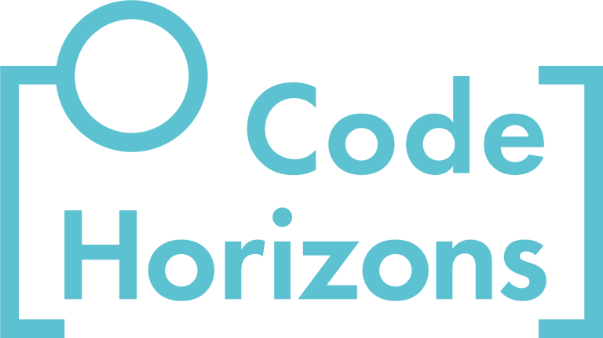Coding Seminars
We provide short seminars that cover a variety of coding techniques, which have become an essential element of research productivity in science and industry.
Cutting-edge. Hands-on. Complete.
Public Seminars & Onsite Training
Code Horizons offers public livestream courses and provides on-site seminars, training, and consulting services. We provide participants and clients with a solid understanding of coding methods.
Public Seminars
Code Horizons offers short seminars on a variety of important and timely coding topics. Each course features small group sizes, top-notch expert instructors, and extensive hands-on practice. Participants will use their own laptop computers, pre-loaded with relevant software and datasets provided prior to the beginning of the seminar.
Our upcoming seminars are listed below. Just click on the course titles for detailed information and registration. Please check back periodically for updates. All courses are livestreamed via Zoom. Video recordings of the sessions will be available to participants for an additional four weeks after the end of the seminar.
Data Wrangling with R
July 30-August 2, 2024
R is a free and open-source package for statistical analysis that is widely used in the social, health, physical, and computational sciences. R is powerful, flexible, and has excellent graphics capabilities. It also has a large and rapidly growing community...
Learn More
Using Large Language Transformer Models for Research in R
August 6-8, 2024
This seminar will introduce you to basic techniques to convert unstructured text data to structured data in R. As a necessary precursor to large language transformer models (LLMs), the course will also cover word embeddings and their use, and you...
Learn More
Unsupervised Statistical Learning Using Python
August 12-13, 2024
Python is a general-purpose programming language. It is open-source, powerful, and easy to use. Because of this, Python is one of the most popular languages in the world, and it has become indispensable in data science. In this course, we...
Learn More
R for Stata Users
August 21-22, 2024
R is a free and open-source package for statistical analysis that is widely used in the social, health, physical, and computational sciences. While many excellent analysis packages exist, researchers gravitate to R because it is powerful, flexible, has excellent graphics...
Learn More
Data Analysis With ChatGPT: Promise and Pitfalls
August 27-28, 2024
One of ChatGPT’s newest abilities is its Advanced Data Analysis mode. This allows users to work interactively with ChatGPT to analyze their own data in Python without knowing any Python code themselves. In this mode, users can upload their own...
Learn More
Bayesian Analysis for Qualitative Evidence
September 5-6, 2024
Qualitative evidence can make vital contributions to social science research that strives for explanation. Diverse kinds of qualitative information, including but hardly limited to interviews, ethnographic observations, news reports, meeting notes, and archival records, provide “clues” that help us adjudicate...
Learn More
Designing Effective Online Surveys
October 10-12, 2024
The Internet has revolutionized survey research. Web-based surveys are now used in many disciplines, and for good reason. Compared to traditional paper-and-pencil and face-to-face modes of data collection, they make it easy to randomize question order, skip irrelevant questions, include...
Learn More
Data Visualization Using R
October 17-19, 2024
The effective use of graphs and charts is an important way to explore data for yourself and to communicate your ideas and results to others. Being able to produce effective plots from data is also the best way to develop...
Learn More
Regression Modeling for Prediction Using Python
October 24-25, 2024
Python is a general-purpose programming language. It is open-source, powerful, and easy to use. Because of this, Python is one of the most popular languages in the world, and it has become indispensable in data science. In this course, we...
Learn More
Data Cleaning
October 31-November 2, 2024
The management and cleaning of data is essential to the integrity of research findings. Unfortunately, there is little formal focus on how to approach data cleaning. For example, when someone says “you need to clean the data” what exactly does...
Learn More
Introduction to the Analysis of Electronic Health Records
November 7-9, 2024
The widespread adoption of electronic health records (EHR) has generated massive amounts of clinical data with potential to improve healthcare delivery and advance biomedical research. EHRs contain comprehensive patient-level information collected over time, including demographics, disease diagnoses, medical procedures, and...
Learn More
Introduction to In-Depth Interviews
November 7-9, 2024
In-depth interviews play a vital role in the social sciences and applied research. Interviews offer a powerful tool to understand people’s accounts, experiences, narratives, and attitudes. While they are commonly a stand-alone research method, in-depth interviews are also frequently combined...
Learn More
R for SPSS Users
November 21-22, 2024
In just 8 hours (over 2 days), you will learn how to convert SPSS workflow into R code from the perspective of an instructor who is a long-time user of both programs. SPSS users in the social sciences and other...
Learn More
My First R Package
December 5-6, 2024
Writing R packages is the perfect way to level up your programming skills while unlocking many benefits. Doing so can enhance your productivity by reducing the need to rewrite similar code over and over. R packages improve the portability, replicability,...
Learn More
